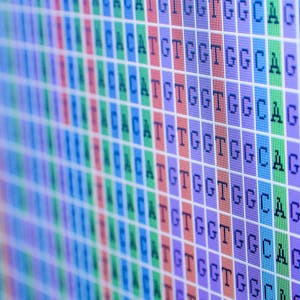Large-scale biology projects such as the sequencing of the human genome and gene expression surveys using RNA-seq, microarrays and other technologies have created a wealth of data for biologists. However, the challenge facing scientists is analyzing and even accessing these data to extract useful information pertaining to the system being studied. This course focuses on employing existing bioinformatic resources – mainly web-based programs and databases – to access the wealth of data to answer questions relevant to the average biologist, and is highly hands-on. Topics covered include multiple sequence alignments, phylogenetics, gene expression data analysis, and protein interaction networks, in two separate parts.
The first part, Bioinformatic Methods I (this one), deals with databases, Blast, multiple sequence alignments, phylogenetics, selection analysis and metagenomics.
The second part, Bioinformatic Methods II, covers motif searching, protein-protein interactions, structural bioinformatics, gene expression data analysis, and cis-element predictions.
This pair of courses is useful to any student considering graduate school in the biological sciences, as well as students considering molecular medicine. Both provide an overview of the many different bioinformatic tools that are out there.
These courses are based on one taught at the University of Toronto to upper-level undergraduates who have some understanding of basic molecular biology. If you’re not familiar with this, something like https://learn.saylor.org/course/bio101
might be helpful. No programming is required for this course.
Bioinformatic Methods I is regularly updated, and was completely updated for January 2022.
None
Syllabus
Syllabus - What you will learn from this course
Week 1
NCBI/Blast I
Week 2
Blast II/Comparative Genomics
Week 3
Multiple Sequence Alignments
Week 4
Review: NCBI/Blast I, Blast II/Comparative Genetics, and Multiple Sequence Alignments
Week 5
Phylogenetics
Week 6
Selection Analysis
Week 7
‘Next Gen’ Sequence Analysis (RNA-Seq) / Metagenomics
Week 8
Review: Phylogenetics, Selection Analysis, and ‘Next Gen’ Sequence Analysis (RNA-seq)/Metagenomics + Final Assignment
FAQ
When will I have access to the lectures and assignments?
Access to lectures and assignments depends on your type of enrollment. If you take a course in audit mode, you will be able to see most course materials for free. To access graded assignments and to earn a Certificate, you will need to purchase the Certificate experience, during or after your audit. If you don't see the audit option:
The course may not offer an audit option. You can try a Free Trial instead, or apply for Financial Aid.
The course may offer 'Full Course, No Certificate' instead. This option lets you see all course materials, submit required assessments, and get a final grade. This also means that you will not be able to purchase a Certificate experience.
What will I get if I subscribe to this Specialization?
When you enroll in the course, you get access to all of the courses in the Specialization, and you earn a certificate when you complete the work. Your electronic Certificate will be added to your Accomplishments page - from there, you can print your Certificate or add it to your LinkedIn profile. If you only want to read and view the course content, you can audit the course for free.
Is financial aid available?
Yes. In select learning programs, you can apply for financial aid or a scholarship if you can’t afford the enrollment fee. If fin aid or scholarship is available for your learning program selection, you’ll find a link to apply on the description page.
Reviews
I enjoyed doing the course. It is exciting to see how much one can learn from a few gene or protein sequences. Thank you for making the course understandable to a beginner in bioinformatics!
Bioinformatics 1 was very interesting and enlightening for me. I learnt practical skills which I can now apply in to ace an impactful career. Thank you so much Coursera for this amazing opportunity!
Explanation was on point. As a beginner didn't have to face much problem to understand terminologies and concepts and PDF of the study materials played an important role to understand.
This is course is very helpful to me. The learning material is so easy to follow and the concepts are well explained by the instructor. He is very responsive to answer queries.
